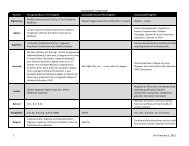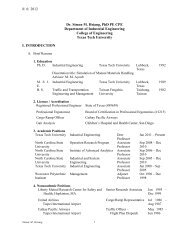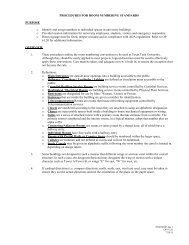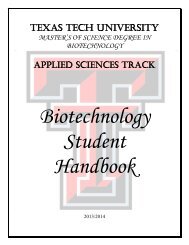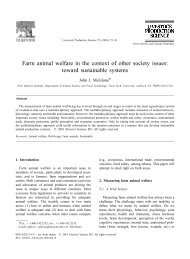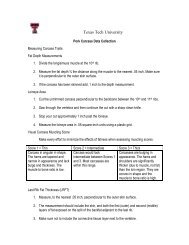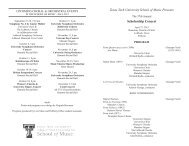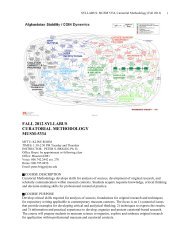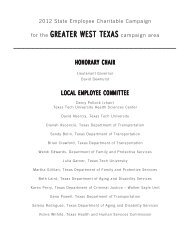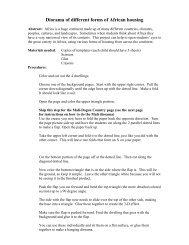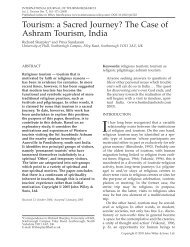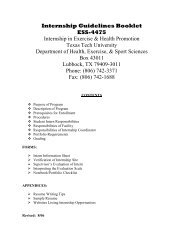Development of Tour Uriely 2005
Development of Tour Uriely 2005
Development of Tour Uriely 2005
You also want an ePaper? Increase the reach of your titles
YUMPU automatically turns print PDFs into web optimized ePapers that Google loves.
212 THE TOURIST EXPERIENCE<br />
suggested that like all other social activities, tourism and leisure are<br />
also subjected to processes <strong>of</strong> class, ethnic, or gender related domination,<br />
which impose constraints on the degree <strong>of</strong> freedom associated<br />
with the tourist experience. Such a power-conflict perspective is applied<br />
by Hollinshead (2002) who criticizes postmodernist thought for<br />
ignoring the power <strong>of</strong> the industry to shape the interpretation <strong>of</strong> heritage<br />
sites in line with the historical view <strong>of</strong> specific interest groups.<br />
Third, ignoring the displayed objects provided by the industry assumes<br />
that differences in interpretations are related solely to the characteristics<br />
<strong>of</strong> the individual tourist. Nevertheless, it is also possible to assume<br />
that some objects or forms <strong>of</strong> tourism are open to a wider variety <strong>of</strong><br />
interpretation than others.<br />
Thus, future research should not ignore the nature <strong>of</strong> the specific<br />
visited object or the particular form <strong>of</strong> tourism as a determinant <strong>of</strong><br />
the subjective experience. For example, questions regarding whether<br />
independent excursions may be experienced in more various ways than<br />
organized tours, or if all museums are alike in terms <strong>of</strong> the variety <strong>of</strong><br />
experiences available in their visitation, are to be empirically addressed<br />
in future studies. Moreover, future studies should focus on the nature<br />
<strong>of</strong> the relations between the objects and the subjects that constitute the<br />
tourist experience. Such an attempt is illustrated in a recent study <strong>of</strong><br />
backpackers’ narratives, which argues for a cyclic relationship between<br />
the institutional discourse provided by the industry, the experience <strong>of</strong><br />
the tourist, and its impact on the individual’s experience <strong>of</strong> self-change<br />
(Noy 2004). Specifically, Noy suggests that a narrative <strong>of</strong> self-change<br />
might be linked to the exceptionality <strong>of</strong> a subjective experience, which<br />
could not separated from the uniqueness <strong>of</strong> the visited destinations as<br />
constructed by the institutionalized discourse <strong>of</strong> tourism. Yet, the latter<br />
is continually reshaped through the subjective narratives <strong>of</strong> adventure<br />
and self-change that backpackers communicate to each other or wouldbe<br />
backpackers before, during, and after their trip.<br />
The aforementioned shift from contradictory and decisive statements<br />
to relative and complementary interpretations <strong>of</strong> the tourist<br />
experience is another matter <strong>of</strong> concern that needs to be addressed.<br />
In this context, one might grasp this development as an indication<br />
<strong>of</strong> the liberal approach and the sense <strong>of</strong> modesty on behalf <strong>of</strong> contemporary<br />
researchers. Nevertheless, it is suggested that the debates that<br />
existed between the early conceptualizations <strong>of</strong> modern tourism stimulated<br />
further studies which support or challenge one <strong>of</strong> the conflicting<br />
aforementioned theories. In contrast, the inclination <strong>of</strong> current<br />
scholars to avoid debates and to accept seemingly conflicting phenomenon<br />
under the category <strong>of</strong> postmodern tourism is congruent with the<br />
statement that ‘‘under postmodernism anything goes’’ (Hollinshead<br />
2002:198).<br />
In conclusion, the shift toward postmodernist or late modernist theorizing<br />
in the literature on the tourist experience was considered in<br />
this paper as a complementary extension <strong>of</strong> earlier theories rather than<br />
as a sharp and contrasting departure from earlier modernist theorizing.<br />
However, it was also suggested that further steps in this direction<br />
might threaten the possibility <strong>of</strong> structuring future knowledge in a



